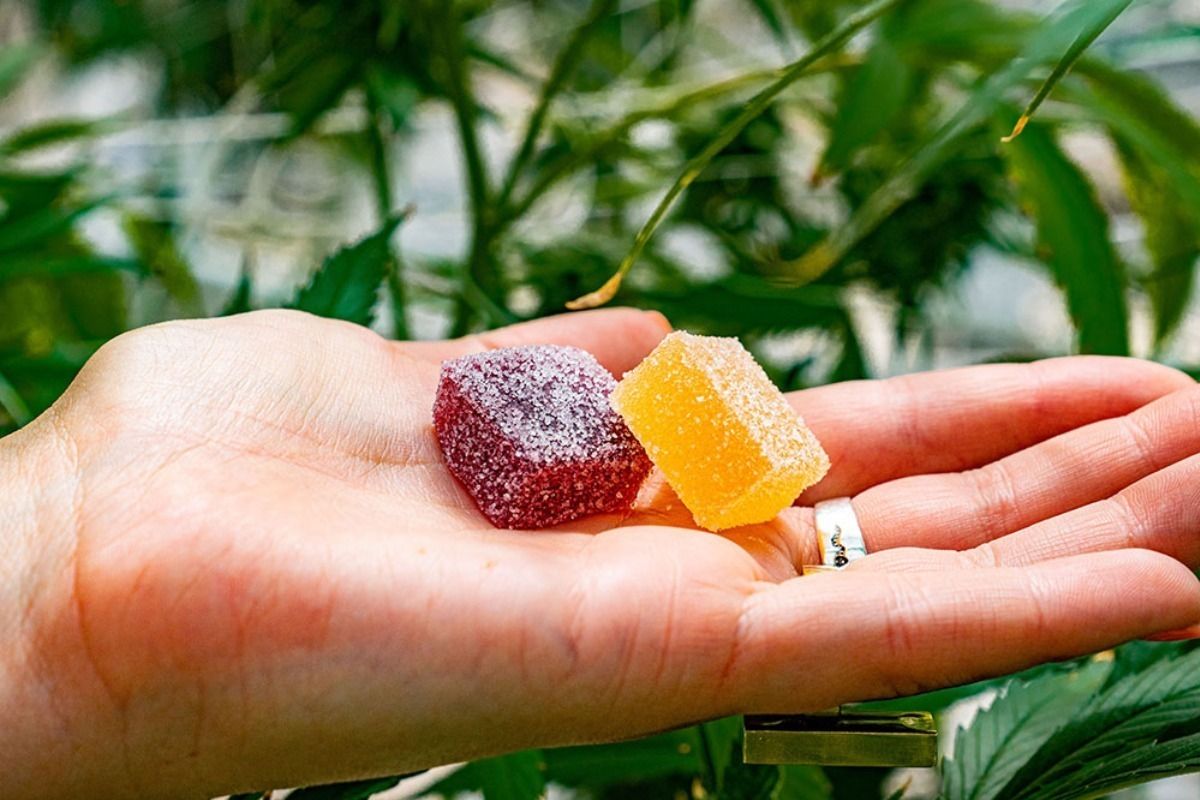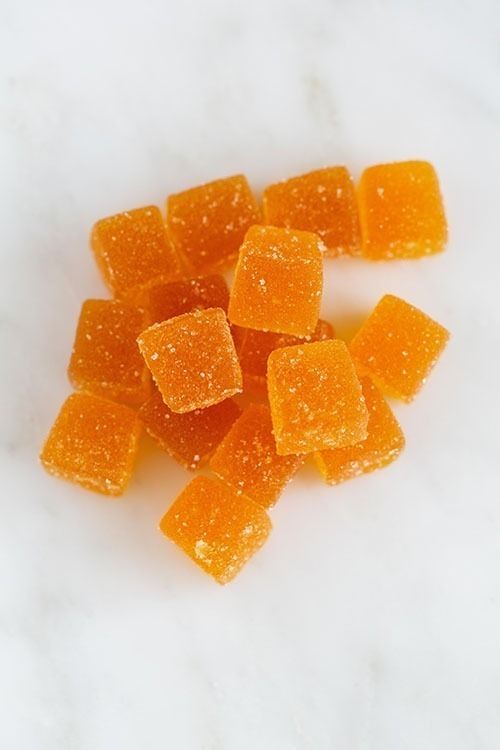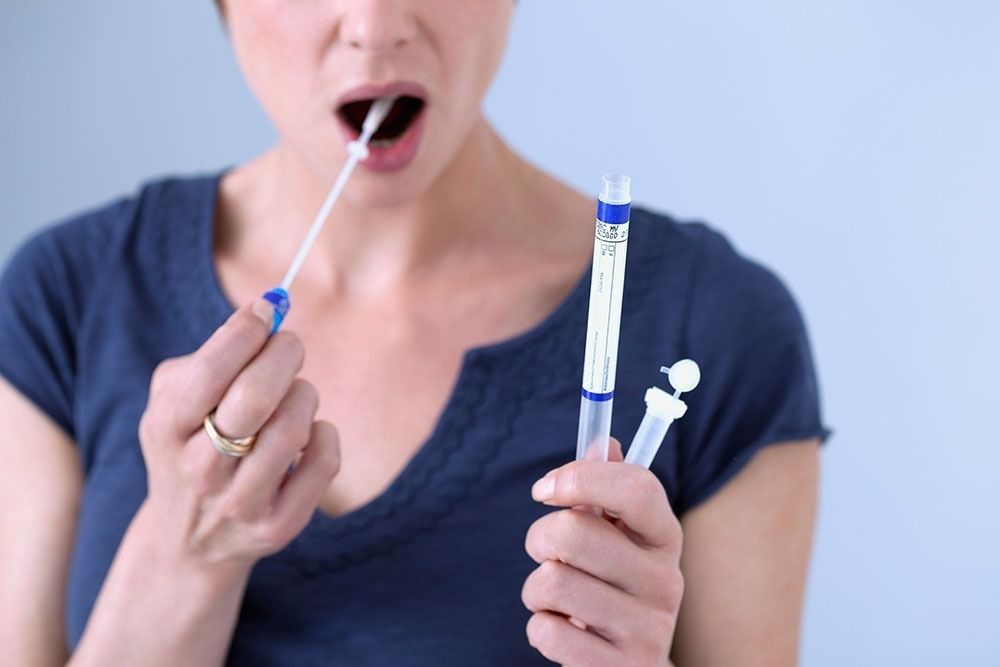How Long Do Edibles Stay in Your System?

Edibles are a discreet and easy-to-use option for consuming cannabis that is gaining popularity. Edibles offer a different experience from oils, softgels, gummies, and smoking, and one question that often comes up is how long these cannabis products stay in your system. In this blog, we will explore the factors that impact how long edibles stay in your system so you have a better understanding of what to expect.
What are Edibles?
In most cases, any food product infused with cannabis is considered an edible. Other popular types of edibles include chocolates, baked goods, and drinks. Edibles are absorbed through the digestive system and liver, offering a different experience from smokables, which are absorbed through the lungs. Since we must digest the food product first, edibles typically take longer to kick in, and the effects also tend to last longer.
What is the difference between CBD and THC edibles?
Cannabidiol (CBD) and tetrahydrocannabinol (THC) are two of the most well-known cannabinoids in the cannabis plant. They are the most likely to be available in an edible, offering significantly different experiences.
THC is the cannabinoid responsible for the “high” or psychoactive effect associated with cannabis. Consuming THC in edible form can provide a more intense and long-lasting high than other consumption forms, such as smoking or vaping. In hemp products like THC gummies, the THC level must be below 0.3% of the total dry weight of the edible serving in order to be Farm Bill compliant.
On the other hand, CBD is a non-psychoactive cannabinoid that is known for its potential wellness benefits. CBD can provide a sense of relaxation and may help with anxiety, pain, and inflammation, and when taken in edible form, it may offer relief for a longer amount of time.**
In terms of legal status, even hemp-derived THC is still illegal in many parts of the world, whereas hemp-derived CBD is legal in most countries as long as it contains less than 0.3% THC. This means CBD edibles are more widely available globally than THC edibles.
Another difference between CBD and THC edibles is the dosage. THC edibles tend to have higher doses of THC than CBD edibles, which can make it easier to consume too much and experience uncomfortable side effects. CBD edibles, on the other hand, are typically lower in dosage, making them less likely to result in any adverse effects.
Overall, the main difference between CBD and THC edibles is their effects. THC edibles provide a psychoactive high, while CBD edibles offer potential wellness benefits without the high. It’s essential to understand the differences between the two before consuming cannabis edibles to ensure you are choosing the benefits right for you. Starting with a low dosage is always recommended to avoid any negative experiences.
How Long Do Edibles Take to Kick In?
One of the most significant differences between edibles and smoking or vaping is how long it takes for the effects to kick in. When you smoke cannabis, the effects are almost immediate. Tinctures taken under the tongue aren’t quite instant, but 20-30 minutes is still fairly quick. With edibles, it can take 30 minutes to two hours to feel the effects, with a peak effect around 3-4 hours. This is dependent on your unique body chemistry and metabolism. This delay can lead some people to consume more than they should, especially THC edibles, which can lead to uncomfortable side effects.
Tips For Consuming Edibles
If you’re new to consuming edibles, it’s essential to start with a low dose and work your way up slowly. This will help you find the minimal amount necessary to provide the relief you seek and avoid overconsumption, which can lead to adverse side effects such as anxiety, paranoia, and nausea.
overconsumption, which can lead to adverse side effects such as anxiety, paranoia, and nausea.
Here are some tips to keep in mind when consuming edibles:
- Be aware of the potency: The potency of edibles can vary widely. Read the label carefully and research the product to ensure you know how much THC or CBD it contains.
- Start with a low dose: 5-10mg of THC or 15-30mg of CBD are good starting points. Wait at least two hours to gauge the effects before consuming more.
- Be patient: The effects of edibles can take up to two hours to kick in and continue to increase for a couple more hours. Don’t make the mistake of consuming more because you don’t feel anything yet.
- Don’t mix with alcohol or other substances: Mixing edibles with alcohol or other substances can lead to unpredictable effects and increase the impact of alcohol and cannabis.
- Avoid driving or operating heavy machinery: The effects of edibles can last for several hours, and it’s essential to avoid driving or operating heavy machinery until you are sure the effects have worn off.
- Keep out of reach of children and pets: Edibles can look like regular food, so it’s essential to keep them out of reach of children and pets to avoid accidental ingestion.
- Stay hydrated and have food on hand: Edibles can cause dry mouth and make you feel hungry. Be prepared to help combat these effects.
By following these tips, you can enjoy the benefits of consuming edibles while minimizing the risk of harmful side effects.
Will Edibles Show Up on a Drug Test?
Yes, CBD and THC edibles can appear on a drug test. Most drug tests are looking for the metabolites of THC, the enzymes used to break down the psychoactive cannabinoid found in cannabis. If the edible contains enough THC, the digestive enzymes will show up on a drug test taken up to a few weeks after consumption.
It is generally believed that THC can stay in your system for several days to a few weeks after consumption, depending on the frequency and amount of use. Your metabolism and overall health, like movement and water consumption, also play key roles.
If you are concerned about drug testing and want to consume cannabis, it may be best to avoid THC altogether and stick to CBD edibles. CBD is non-psychoactive and is less likely to show up on drug tests. However, legal full-spectrum CBD edibles can contain up to 0.3% THC, so it’s essential to research the product’s third-party lab testing results to ensure that it contains only CBD and no THC.
Overall, it’s important to be aware that edibles, particularly those containing THC, can show up on a drug test and to take precautions accordingly.
Different Types of Drug Tests
Different methods are used to test for THC in the system that can provide measurements at various detection times. Here are some common ways to test for THC in the system:
Urine Test: Urine tests are the most common method for testing THC. They detect the presence of THC and its metabolites in the urine. Depending on various factors, THC can be detected in urine for several days to a few weeks after consumption.
Blood Test: Blood tests can also detect the presence of THC and its active metabolites in the bloodstream. They are more invasive and typically used when recent use needs to be determined. THC is detectable in the blood for a shorter period than urine, usually within a few hours to a few days.
Saliva Test: Saliva tests are less common but can be used to detect recent THC use. They are non-invasive and can provide quick results. THC is detectable in saliva for a shorter duration, typically 24-48 hours after use.
Hair Follicle Test: Hair tests are less common and are used to detect use over a longer time. They can detect THC and its metabolites in hair samples for up to 90 days or even longer.
Breath Test: Breath tests are relatively new and primarily used for detecting recent cannabis use while driving. They measure the level of THC in the breath to determine impairment. Breath tests are gaining traction as a non-invasive method but are still being refined.
It’s important to note that the sensitivity and accuracy of these tests can vary. Additionally, some tests may not specifically identify THC but rather its metabolites. Factors such as frequency of use, dosage, metabolism, and individual differences can influence the detection window to test positive for THC in each testing method.
If you are concerned about THC detection, it’s essential to know the specific testing methods and their respective detection windows.

How Long Do Edibles Stay in Your System?
The time that edibles stay in your system can vary depending on several factors. THC can generally remain in your system for up to 30 days, but the effects typically only last a few hours. However, if you consume a large dose, the effects can last up to 12 hours.
Factors That Impact How Long Edibles Stay in Your System
Several factors can impact how long edibles stay in your system. Some of these factors include:
Dosage
The amount of THC in the edible will impact how long it stays in your system. The higher the dosage, the longer it will take for your body to process and eliminate it.
Frequency of Use
If you consume edibles frequently, it can take longer for your body to eliminate the THC. This is because THC is stored in fat cells, and with frequent use, the THC can accumulate in your system.
Metabolism
Your metabolism significantly affects how long edibles stay in your system. If you have a fast metabolism, your body will process the THC quicker than a slow metabolism.
Body Fat Percentage
THC is stored in fat cells, which means that people with higher body fat percentages may have THC stay in their system longer than those with lower body fat percentages.
How Does the Body Break Down Edibles?
When you consume edibles, they are processed by your digestive system, where the food product is broken down into cannabinoids and other nutrients and absorbed into your bloodstream.
Breaking down edibles begins in your mouth, where the food is chewed and mixed with saliva. The saliva contains enzymes that start to break down the compounds in the edibles.
From there, the food travels to your stomach, where it is mixed with stomach acid and further broken down. The cannabinoids in the edibles are then absorbed into the bloodstream through the walls of the small intestine.
Once in the bloodstream, the cannabinoids are carried throughout the body to receptor sites on various organs and tissues, including the brain. This is how they produce their effects, whether it’s the psychoactive high of THC or the potential benefits of CBD.
The liver plays a crucial role in metabolizing cannabinoids consumed in edible form. Once the cannabinoids are absorbed into the bloodstream, they are carried to the liver, where the blood is filtered. Here, they are broken down into metabolites which can then be eliminated from the body over several hours or days.
How to Speed Up the Elimination of THC from Your System
If you are concerned about how long edibles stay in your system, there are several things you can do to speed up the elimination of THC.
Drink Water
Drinking water can help flush the THC out of your system. It is essential to stay hydrated, especially if you are experiencing uncomfortable side effects.
Exercise
Exercise can help increase metabolism and shed fat cells where cannabinoids are stored.
Eat Healthy
Eating healthy can help improve your overall health, which can help your body eliminate THC more efficiently.
Final Thoughts
As we’ve discussed, there are a multitude of factors that affect how long cannabis edibles stay in your system. From individual body chemistry/composition and tolerance to product potency, there’s no surefire way to determine how long edibles will remain in the body. As with any cannabis product, due diligence on the user’s part is imperative to fully understanding what to expect.
** This statement has not been evaluated by the Food and Drug Administration. This product is not intended to diagnose, treat, cure, or prevent any disease.